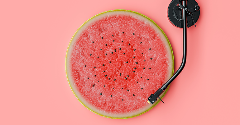News
Could nature-identical ingredients damage the natural sweeteners market?
4 Jul 2018Natural sweeteners are a major target for companies looking to make nature-identical food ingredients, but if they are produced in a lab rather than extracted from a plant, will consumers accept them as natural?

Companies looking to make nature-identical ingredients focus on growing sectors like natural sweeteners because they potentially hold the greatest reward. The processes used are not straightforward, but if they can succeed in scaling up production of rare molecules, they could bring the cost of natural sweeteners down by decoupling the most desirable compounds from their agricultural origins. However, if consumers can no longer tell whether an ingredient actually comes from nature or not, many commentators have suggested that the appeal of some natural ingredients could fade altogether.
Companies like Evolva in conjunction with Cargill, and DSM are exploring the production of nature-identical steviol glycosides – the sweet components in the stevia leaf. They both use fermentation of engineered yeast to produce some of the most sought after sweet compounds without the need for agriculture. These companies hail the process as better for the environment, because they produce ingredients with less energy and water, and allow precious agricultural land to be used for more essential foodstuffs. But it remains to be seen whether these environmental benefits chime with consumers’ expectations of natural ingredients – even if the sweeteners produced are chemically indistinguishable from plant extracts.
While steviol glycosides from fermentation are completely removed from the stevia plant, supplier PureCircle is working on a way to synthesise less common steviol glycosides like Reb D and Reb M, by starting with the more common Reb A compound derived from the plant. It says the resulting ingredients taste identical to Reb D and Reb M and have an advantage over fermentation-derived sweeteners because they retain their plant origins, thereby answering consumer demand for ingredients from nature.
Meanwhile, a German start-up called Savanna Ingredients claims to have found a way to scale up production of allulose, a low-calorie natural sugar that is found in very small quantities in nature, in foods such as figs, raisins, molasses and maple syrup. The company says its method uses enzymes to synthesise allulose from sugar beets. So far, the use of allulose in foods has been limited, but if Savanna Ingredients succeeds in scaling up the process, it could open the door to further products containing the sweetener, which has just 0.2 calories per gram, compared to 4 calories per gram in sugar.
Existing allulose suppliers include Tate & Lyle, Anderson Global Group, Astraea, and Matsutani Chemical Industry Co. Ltd.
Of course, what consumers say they want and what they actually buy often differ. Several studies have suggested that what matters most to shoppers is taste, price, convenience and nutrition. Only if expectations for these attributes are met do consumers start to consider other values, such as naturalness and ethical standards. But increasingly, consumers are rejecting artificial sweeteners, and manufacturers are responding with affordable, good-tasting natural alternatives.
When it comes to the burgeoning market for natural ingredients, suppliers face an enormously difficult task. Many have found sophisticated technologies that allow them to scale up the production of ingredients found in nature – but they must also convince consumers that these technologies are incidental.
Related news

Retail landscape lacks nutritious and affordable food, says ATNi
30 Dec 2025
A rapid increase in modern food retail has given retailers growing influence over consumer diets, according to global non-profit ATNi’s latest assessment.
Read more
Debate over ban on ‘meaty’ names for plant-based products reaches stalemate
26 Dec 2025
The debate over a ban on plant-based products using “meaty” terms has reached a stalemate, leaving manufacturers in limbo and still facing overhauls to their marketing and packaging.
Read more
Multi-sensory food and drink products to gain traction in 2026
16 Dec 2025
Trend forecasters predict that sensory elements will play a larger role, helping food and beverage brands differentiate themselves in a competitive market in 2026.
Read more
Big appetite for M&A between European and US food and drink companies
3 Dec 2025
Persistent tariffs on EU food and beverage exports have helped drive record levels of M&A activity between European and US companies this year, according to analysis by ING.
Read more
Non-UPF Program extends certification scheme to entire food industry
30 Nov 2025
The Non-UPF Program has extended its certification scheme to the wider food sector, championing a move towards healthier consumption habits.
Read more
Lancet study links UPFs to chronic disease risk
26 Nov 2025
UPFs are consistently associated with an increased risk of diet-related chronic diseases, according to a comprehensive review of global evidence in The Lancet .
Read more
Concerns swirl around cinnamon’s compliance with EU law
25 Nov 2025
Cinnamon may be a top functional ingredient, but it needs stronger protocols to ensure it meets EU food safety laws and quality standards, say researchers.
Read more
Oat Barista: Innovation for game-changing beverages
20 Nov 2025
Oat Barista is a clean label, sustainable, and innovative drink base specifically designed to create the perfect foam in one single ingredient.
Read more
How younger consumers are redefining ingredient choices and rejecting brand loyalty
18 Nov 2025
Gen Z and millennial consumers’ preferences for transparency, functionality, and purpose are “redefining the very nature of consumption itself”, says SPINS.
Read more
Hybrid formats and flexible positioning to disrupt category norms in 2026
17 Nov 2025
Trend forecasters expect food and drink to move more fluidly across occasions, functions, and formats as consumers seek versatility, novelty, and convenience.
Read more